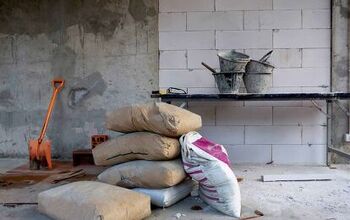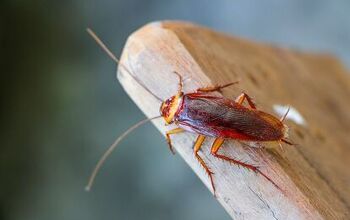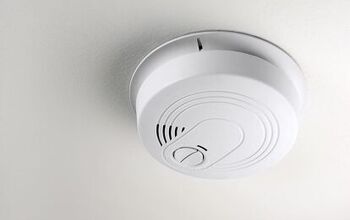What To Do With Your Extra Peppers After Picking

Anyone who has grown multiple pepper plants knows just how fruitful they can be. Many pepper plants are so prolific that it’s hard to use all the peppers they produce. Understandably, you may be at a loss with what to do with your extra peppers after picking them.
Bagging and storing them in the freezer is the best thing to do with your extra peppers. You can also pickle them with vinegar or dry and grind them into a seasoning. Otherwise, you can make a spicy tincture, salsa, or stuffed pepper appetizer at home. Be careful if you gift particularly spicy peppers to friends and family.
Make sure to wear gloves when handling spicy peppers, such as ghost peppers and jalapenos. Follow along as we explore what to do with your extra peppers after picking them.
What To Do With Extra Peppers From The Garden
1. Store Them
Storing your extra peppers is the best option after picking too many of them. That way, you can enjoy your peppers for a long time even after the growing season is over. Luckily, peppers hold up well if you properly store them in airtight containers.
First, you must place your peppers on a sheet or pan and put them in the freezer. Keep them on the pan until they feel stiff, remove them, and put them in a freezer-safe plastic bag. Now, you can keep your peppers in the bag in the freezer for months and thaw them as needed for dishes.
2. Pickle Them
Pickling peppers is a great way to not only preserve them but also get the most out of them. You have many options, as you can pickle individual types in one container, or make a mixture. Some gardeners even put garlic cloves and herbs in the jar when they pickle peppers.
Make sure to put on gloves before you pickle peppers, as the acidity of the peppers and vinegar can burn your skin. Protective eyewear is also a great idea if you have sensitive eyes. You can pickle them uncooked, but some people sautée their peppers before pickling them.
Next, set out a clean jar and some vinegar. Place your peppers in the jar and pour enough vinegar to cover them. Ideally, you should leave your peppers in the jar for up to a week before you eat them. This provides the best flavor.
3. Gift Your Peppers
It’s hard to consume all your peppers if you grow several varieties that keep bearing fruit. In that case, your best option is to give some of your peppers away. Ask your friends, family, and neighbors if they are interested in peppers, and gift them accordingly.
Ideally, you should wash the peppers before you give them to anyone. Put them in airtight bags and make sure to educate the recipient about the peppers. For example, you must warn someone before giving them highly spicy peppers, such as ghost peppers.
4. Make A Tincture
Are you addicted to spicy food? Today, more and more people like to challenge their taste buds with spicy flavors. You can do this without much effort if you make a homemade pepper tincture.
How spicy your tincture is depends on the type of tincture you make. For example, tinctures made of Carolina reapers and ghost peppers are spicier than bell pepper tinctures. First, you must clean, dehydrate, de-seed, and cut your peppers.
Next, you must grind the peppers into a sandy texture and pour high-proof alcohol over them. Ideally, you should use something like Everclear, but only enough to rise 1” above the pepper dust. Keep the mixture in a jar for up to 2 weeks, strain it to remove the pepper dust, and put it in a dropper bottle.
5. Stuff Them
Stuffed peppers are among the best homemade dishes you can make using your hard work in the garden as a foundation. This is a great way to use extra peppers, as it’s a dish that you can cater to your dietary restrictions. For example, you can stuff peppers with meat, rice, cheese, seafood, or herbs.
Keep in mind that this is a dish that is best prepared and served on the same day. You can make this dish for weeks or even months if you store enough peppers.
6. Create A Seasoning
It’s quite satisfying to create your own homemade seasoning to spice up all your dishes. You must wash and dehydrate the peppers before you can turn them into a seasoning. It’s a great idea to dice your peppers or cut them in half.
That way, it won’t take nearly as long for them to dry. Next, you must dehydrate the peppers so they are easier to grind for your seasoning. The easiest way to dehydrate peppers is to put them in the oven and set the temperature to 120-200 degrees Fahrenheit.
Otherwise, you may want to invest in a dehydrator if you plan to make homemade seasoning regularly. Once they are dry, you can easily grind the peppers into a fine powder and collect them in a container. Feel free to add whatever herbs and spices you want, then store your seasoning in a pantry or cabinet.
7. Make Salsa
What better way to use your extra peppers than to make salsa? You can even use other fruits and vegetables from your garden to get the most out of your fresh salsa. To add extra flavor, throw in some onions, tomatoes, cilantro, and garlic cloves.
If you grew several types of peppers this past season, you can even make a unique salsa blend. However, you must be careful with how many peppers you use unless you are a spice enthusiast who won’t mind the heat.
You don’t need to use all your extra peppers at once. Slice and freeze some of them so you can make more batches of salsa over the next few weeks or months.
Summing It Up
You can easily freeze your extra peppers to store them for months, and they won’t go bad anytime soon. It’s also a great idea to can or pickle them with vinegar to add extra flavor and preserve them. Many gardeners also clean, dehydrate, and grind their peppers into a homemade seasoning.
Related Guides:

Nick Durante is a professional writer with a primary focus on home improvement. When he is not writing about home improvement or taking on projects around the house, he likes to read and create art. He is always looking towards the newest trends in home improvement.
More by Nick Durante












![10 Best Electric Lawn Mowers - [2022 Reviews & Top Rated Models]](https://cdn-fastly.upgradedhome.com/media/2023/07/31/9070486/10-best-electric-lawn-mowers-2022-reviews-top-rated-models.jpg?size=350x220)














